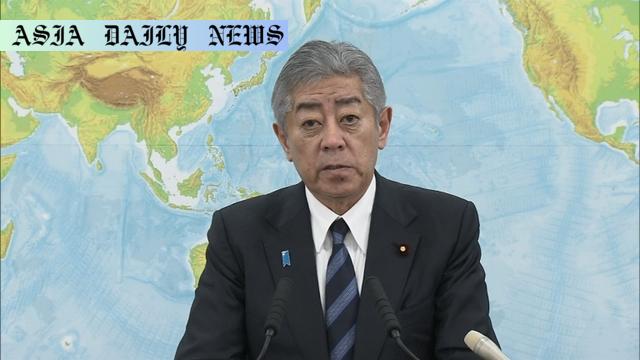ASEAN Plus Three aims at international economic order, food security, and disaster management through cross-nation cooperation.
Japan’s FM advocates a rules-based international economic order.
Highlighting collaboration on food security, disaster management, and health.
Focusing on challenges like aging populations and low birthrates.
Stress on digital fraud prevention and maintaining fair trade practices.

Introduction: ASEAN Plus Three Cooperation in Focus
The ASEAN Plus Three (APT) group, comprising the ten Southeast Asian nations and their partners—Japan, China, and South Korea—has taken a significant step toward strengthening regional ties and cooperation on pressing global challenges. At the recent ministerial conference held in Malaysia, Japanese Foreign Minister Iwaya Takeshi urged member nations to reinforce collaboration on vital areas such as disaster management, food security, health, and addressing population dynamics like low birthrates and aging populations. This move echoes the increasing importance of a rules-based international economic order amidst global economic uncertainties.
Addressing Economic Disparities and Promoting Free Trade
One of the cornerstone discussions during the ASEAN Plus Three meeting was the urgent need to reinforce the global economic framework. Minister Iwaya highlighted the necessity of fostering a free, fair, and rules-based economic system, particularly in light of ongoing geopolitical tensions and trade disputes. This forum also underscored the pivotal role of ASEAN Plus Three in stabilizing the global economy, being home to some of the world’s fastest-growing economies. To this end, enhancing economic resilience and sustainability was a recurring topic of discussion and a shared objective among the participants.
Disaster Management: A Shared Responsibility
Beyond economics, disaster management emerged as an area of particular concern. Southeast Asia, being highly prone to natural disasters such as typhoons, earthquakes, and floods, necessitates robust, collaborative strategies for mitigation and response. The Japanese foreign minister elaborated on the need for regional frameworks to exchange expertise and pool resources efficiently. Utilizing advanced technologies and early warning systems was touted as a game-changer for reducing the impact of such calamities—a sentiment echoed by other participants at the meeting.
Food Security and Aging Population Challenges
Another critical issue raised was the vulnerability of the region’s food supply chains. The ongoing climate crisis and geopolitical tensions have made nations reliant on one another to ensure food security—a complex web of interdependence. Iwaya also underscored the pressing issues of low birthrates and aging populations, which have emerged as common challenges for the region. Cooperation in healthcare infrastructure, demographic policies, and human capital development are now seen as imperatives to drive regional growth and secure the well-being of future generations.
Combating Online Fraud and Expanding Digital Cooperation
Expanding on non-traditional security threats, Minister Iwaya urged stronger regional efforts to tackle the growing menace of cybercrime, particularly online fraud originating from Southeast Asia. He emphasized the importance of developing robust cyber governance frameworks and data-sharing mechanisms to counter these threats effectively. This highlights a future-ready vision of ASEAN Plus Three, focused not just on traditional issues but also on emerging challenges in the digital age.
Conclusion: ASEAN Plus Three Moving Forward
The ministerial conference in Malaysia aptly showcased ASEAN Plus Three’s commitment to cooperation in diverse areas, from economic resilience to innovative disaster management and digital security strategies. The commitments made during the meeting are a testament to the collaborative spirit of the region’s nations, united to address common challenges and promote long-term prosperity. In an interconnected and evolving global landscape, the ASEAN Plus Three mechanism exemplifies the significance of multilateral engagement as a tool for regional stability and growth.
Commentary
The Importance of a Rules-Based Economic Order
Japan’s push for a rules-based economic order within the ASEAN Plus Three framework couldn’t come at a better time. The post-pandemic world has revealed vulnerabilities in global supply chains and trade systems, highlighting the need for equitable and transparent economic practices. Aligning regional policies to these principles ensures not only fair trade but also instills confidence among investors and stakeholders. This cooperation can become a model for other regions and elevate ASEAN Plus Three’s global standing.
Disaster Preparedness as a Priority for the Region
With natural disasters becoming more frequent and intense due to climate change, effective disaster preparedness and response mechanisms are now a top priority. Collaborative efforts are vital to creating shared resources, technological advancements, and training programs that bolster regional resilience. Japan’s expertise in disaster response presents a significant advantage, one that can empower the ASEAN Plus Three region to mitigate the impact of future calamities more effectively.
Online Fraud and the Future of Digital Security
The acknowledgment of digital security threats, like online fraud, during the ministerial meeting is a clear indicator of the times we’re living in. As the region becomes increasingly interconnected and dependent on digital infrastructure, addressing cybersecurity gaps is crucial. This requires not just individual national efforts but a unified regional approach. Cybersecurity cooperation can serve as an area where ASEAN Plus Three sets a global example, showcasing the potential for international collaboration in mitigating emerging threats.
Final Thoughts: ASEAN Plus Three’s Role in Global Stability
The ASEAN Plus Three summit’s focus areas encapsulate an essential truth: global challenges require global solutions. Economic uncertainty, population dynamics, food security, and disaster response cannot be addressed in isolation. Strengthening this forum will not only benefit the member nations but also contribute to global stability and progress. Looking ahead, nations must continue to prioritize dialogue, inclusivity, and innovation to ensure the collective growth and security of the region.


